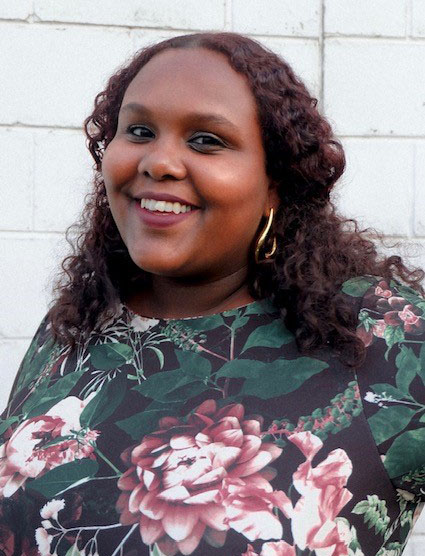The BCA's Victim, Family and Community Relations Coordinator Promotes Healing and Progress
March 1, 2021
“The criminal justice system was not designed for victims," says Biiftuu Ibrahim Adam, and she should know. She's the Bureau of Criminal Apprehension's (BCA) first-ever victim, family and community relations coordinator, a position she's held for almost a year now. Simply put, she serves as a liaison and point of contact for victims of violent crime, as well as their families and communities, throughout Minnesota: officer-involved use-of-force investigations, missing persons and officer-involved sexual assault; as well as homicides, trafficking, and other crimes.

“What we know from these cases in the past is that families are looking for someone to support them in a victim advocacy way. Even after a case is over, there is still a need for support. That support looks different depending on the need for resources; it may range from healing therapy services and securing stable housing to financial assistance and more to begin the healing journey," says Adam. She's involved with the cases from the very beginning: “I often go with the agents to meet with families in person. I provide them with my information and serve as a resource from then forward." She helps connect certain violent crime victims and their families with reparations and finds culturally appropriate therapy and other services.
The work of the BCA victim, family and community relations coordinator is important because families and communities are traumatized, and their lives are changed and affected forever. “The criminal justice system is confusing and complex," she says, “so it's important to provide trauma-informed care for family members who are dealing with massive trauma and interpret legal language in a manner that is clear."
Adam notes that community needs must be continuously centered. “There's a lot of mistrust that we have to acknowledge as valid and real and not try to explain away. Most critically, we need to build that trust by helping to navigate at every step of the process, listening, and responding to meet the needs."
Adam brings her full self to her work, including her racial and ethnic background. “It's important that people I'm working with can see themselves in me," she says. “We know how deeply important representation is, and feeling like I represent the victims, families and communities I work with is essential to me doing my job well."
Adam has made it her mission to continually improve the process. “I often get feedback from family members, victims and the community about the process, how it feels, whether it's good or bad, and other concerns," she explains. On an ongoing basis, she shares this feedback with leadership to “make sure we're adapting as necessary to best serve community members." We are committed to doing so.

